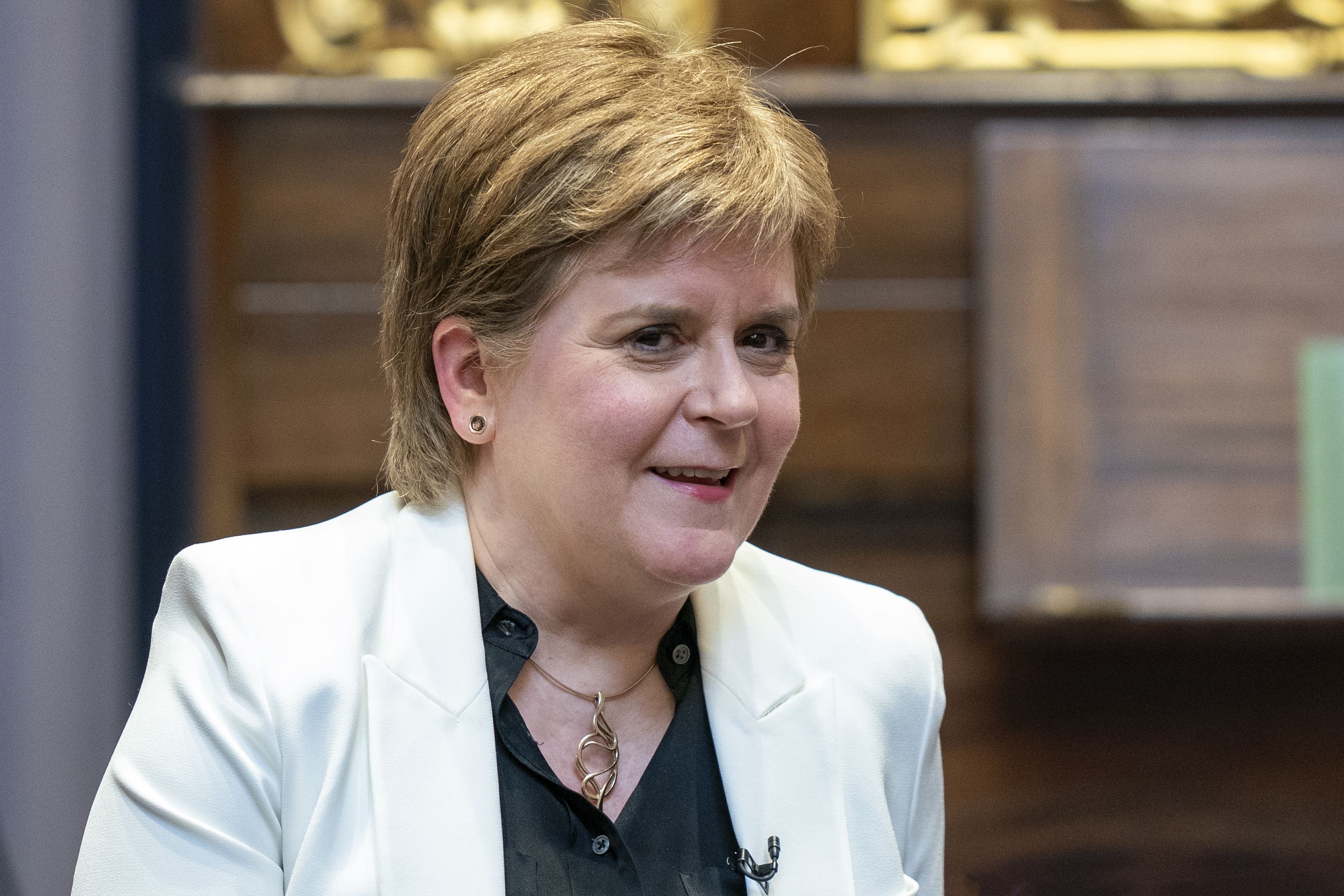Polarisation in politics did not improve after my resignation, says Sturgeon
She stood down in February 2023, believing she had become a ‘polarising’ figure in UK politics.

Your support helps us to tell the story
From reproductive rights to climate change to Big Tech, The Independent is on the ground when the story is developing. Whether it's investigating the financials of Elon Musk's pro-Trump PAC or producing our latest documentary, 'The A Word', which shines a light on the American women fighting for reproductive rights, we know how important it is to parse out the facts from the messaging.
At such a critical moment in US history, we need reporters on the ground. Your donation allows us to keep sending journalists to speak to both sides of the story.
The Independent is trusted by Americans across the entire political spectrum. And unlike many other quality news outlets, we choose not to lock Americans out of our reporting and analysis with paywalls. We believe quality journalism should be available to everyone, paid for by those who can afford it.
Your support makes all the difference.The “reset” of political polarisation Nicola Sturgeon hoped would happen after her resignation has not taken place, the former first minister has said.
Ms Sturgeon stood down in February 2023, fearing she had become a “polarising” figure in UK politics, a status she said stood in the way of progressing her party’s agenda.
But her hopes that the febrile atmosphere in political discourse would improve after she left office have not come to fruition, she told interviewers from the Institute for Government.
Speaking to the think tank in October in an interview published on Friday, the former first minister – the longest to hold the office in the 25 years since devolution – said: “I had become a polarising figure.
“I think it turns out I was wrong about this, but I convinced myself that if I took myself out somebody else would be able to reset things.
“Obviously that didn’t happen and hasn’t happened.”
Following her resignation and a tense leadership race, Humza Yousaf took over as first minister and was widely seen as a continuity figure, hailing from the same wing of the party as Ms Sturgeon.
When Mr Yousaf resigned after collapsing the Bute House Agreement with the Scottish Greens, John Swinney – Ms Sturgeon’s deputy for her entire time in Bute House – took the reins.
In a wide-ranging interview with the think tank, the former first minister said her handling of the pandemic was what pushed her to quit, describing it as having taken a toll “physically and mentally”.
I had lost my appetite for the cut and thrust of politics a little bit
She said: “I had lost my appetite for the cut and thrust of politics a little bit. You can say politics can be too cut and thrust sometimes – and sometimes it is – but as a political leader you need to have that.
“You can’t survive in the jungle of politics without it and I had definitely lost it through the experience of Covid.”
She also admitted to having made “lots of mistakes”, telling the interviewers “I regret big infrastructure failures” like the repeated delays and cost overruns to two ferries being built at the Ferguson Marine shipyard in Port Glasgow, Inverclyde.
Ms Sturgeon also reflected on the relationship she had with the five UK prime ministers who were in place during her tenure.
“With David Cameron, there was a sense of trying to understand how devolution worked and what that meant for the decisions he took,” she said.
“With Theresa (May), I think Brexit just overwhelmed her. I’m not sure there would have been that understanding even without it, but certainly with Brexit I just don’t think she had the bandwidth to really work out devolution.
“I didn’t really get to meet Liz Truss.
“Boris (Johnson) was Boris. Trying to work with Boris was just impossible, end of.
“Rishi (Sunak) I think intellectually got devolution, but I think the political pressures on him meant that he was always going to go in the other direction.”
Asked about her views on the current Labour-led UK Government, she said her impression – formed from conversations with current Scottish ministers – is that it is “more rhetoric than substance and I don’t get the sense that there’s any meaningful change in approach. But we’ll see”.